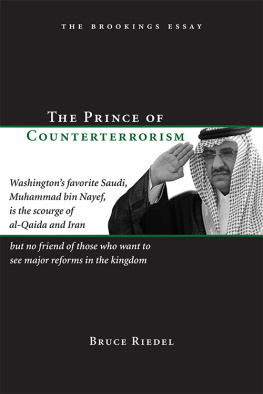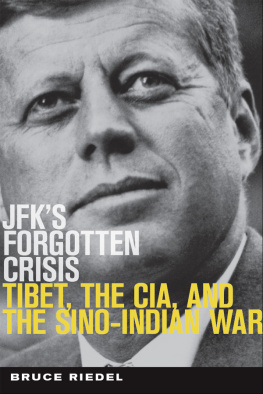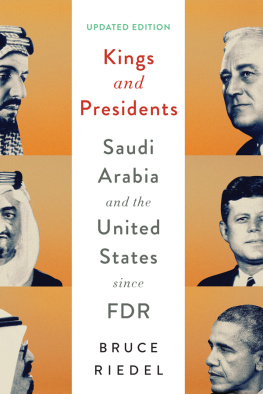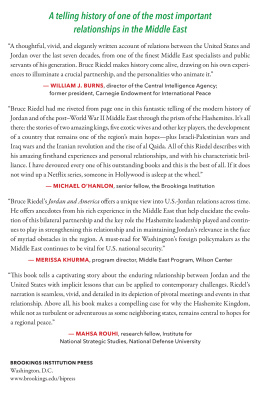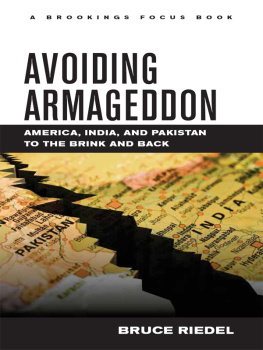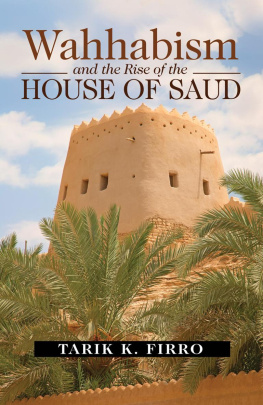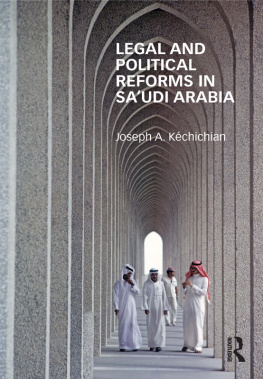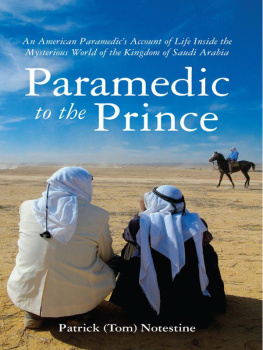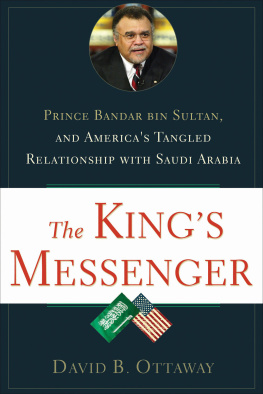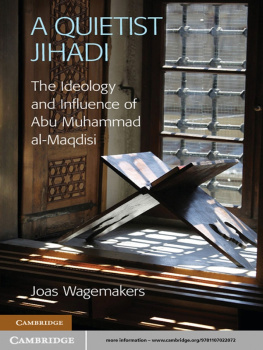September 2015
T HE KINGDOM OF S AUDI A RABIA , Americas oldest ally in the Middle East, is on the verge of a historic generational change in leadership. King Salman bin Abdul-Aziz Al Saud, 79, who ascended to the throne in January, following the death of King Abdullah, will be the last of the generation of leaders who built the modern kingdom, transforming it from a poor desert backwater into a prosperous, ultra-conservative regional power with enormous oil wealth.
What the future has in store for the kingdom is of great concern to Washington. Within months of becoming king, Salman plunged into what appears to be a quagmire war in Yemen, snubbed President Obama, and endorsed hardline clerics who are opposed to reforms that Obama argues are necessary if Saudi Arabia is to remain a stable partner for the United States. Not a promising start from the American point of view. However, one of the kings first moves was greeted very enthusiastically: he changed the order of succession, pushing aside his half-brother Muqrin bin Abdul-Aziz as next in line to the throne and making one of his nephews, Muhammad bin Nayef, 56, the new crown prince and heir.
MBN, as he is known, will be the first of his generation to rule the kingdomunless, of course, the king reshuffles the deck again. U.S. officials are keeping their fingers crossed, since MBN is the darling of Americas counterterrorism and intelligence services, having performed several critical services for the U.S. in his capacity as deputy minister of the interior and then minister of the interiorthe office that oversees all domestic security matters. Unlike his father, who preceded him in those positions, he is pro-American, almost certainly more so than any other member of the Saudi leadership.
The Black Prince: Nayef bin Abdul-Aziz
In the Saudi monarchy bloodlines are all-important. Who your father is in the royal pecking order is the major factor in determining your fate. If your father is a direct descendant of the king, you may become king. Since Saudis have many wives and concubines, the mothers bloodline is less important but not irrelevant.
The founding patriarch of modern day Saudi Arabia, and father of all the kings who have followed him, was King Abdul-Aziz bin Saud, known in the West as Ibn Saud. He led his tribal army into power in Riyadh early in the 20th century, and by the 1930s he was the undisputed master of the Arabian Peninsula from the Red Sea to the Persian Gulf, including the two holy cities of Mecca and Medina.
Ibn Saud had at least 22 wives and 44 acknowledged sons. Since his death in 1953, six of those sons have ruled the kingdom in succession. His 23rd son, Nayef bin Abdul-Aziz (Nayef)MBNs fatherwas second in line to the throne, but died in 2012, just a few years before he would have succeeded King Abdullah.
Born in 1934 near Taif, Nayef was educated in Riyadh at what was called the princes school, where his teachers were clerics of the Wahhabi faith, the brand of Sunni Islam that runs the kingdom. The alliance between the House of Saud and the Wahhabis dates back nearly three centuries, to the very beginning of the rule of the Saudis. In 1744 an itinerant preacher and cleric named Muhammad Ibn Abd al-Wahhab joined forces with the then head of the Saudi family, Muhammad al-Saud, to create the first Saudi kingdom. While the Saudis provided political and military leadership, Wahhab and his descendants provided religious leadership and legitimacy. Wahhab and his disciples preached a puritanical and sectarian version of Islam that called for a return to literal fundamentalism and an intolerance of any deviation from their hard line views on what constituted the original faith of the Prophet Muhammad.
Early in the 19th century, at a time when the Ottoman Empire was preoccupied with fighting off Napoleons invasion of Egypt and Palestine, the Saudis mounted a land grab against the empire. Their tribal armies conducted raids into todays Iraq and pillaged the Shiite holy city of Karbala, then turned west and conquered the holy cities of Mecca and Medina, purging them of any symbols of Ottoman rule and anything that struck the Wahhabi faithful as deviationist. Most of the Islamic world at the time viewed the Saudis and their clerical allies as fanatics and usurpers, similar in some ways to how the Islamic State is regarded by mainstream Muslims today. This first Saudi state was larger in territory at its peak than todays but their reign was brief. Once the French were defeated, the Ottomans sent armies into Arabia to recover the holy cities and then destroy the Saudi capital at Diriyah, just outside of todays Riyadh. Later the Saudis were exiled to Kuwait, not to resume power over the Arabian Peninsula until Ibn Saud led his tribal army out of exile, re-captured Riyadh, and established the third Saudi kingdom, which has lasted until the present dayas has the power of the Wahhabis.
The Wahhabis alliance with the royal family allows them to oversee Saudi society and enforce Islamic law and customs, which they do in part by working closely with the Ministry of the Interior, their most important ally in the government. In 1970, when Nayefs full brother Fahd was the minister, he made Nayef his deputy minister. In 1975 when Fahd became crown prince, after their older brother King Faisal was assassinated by a disgruntled prince angry at the introduction of television in the kingdom, Nayef succeeded Fahd as the minister.
As interior minister, Nayef had a reputation as an arch-reactionary. He aligned himself very closely with the most puritanical elements of the clergy, opposed reform and change, rejected demands for more freedom of expression, continued the treatment of the kingdoms Shiite minorityaround 10 percent of the population, located mostly in the oil rich Eastern Provinceas second-class citizens, and only reluctantly tolerated any kind of development. When asked why he opposed reforms that would start the kingdom on the path to becoming a constitutional monarchy, Nayef, who clearly had his eye on the throne, replied, I dont want to be Queen Elizabeth. His policies were so extreme that Nayef was known as the Black Prince among the large expatriate Western worker population in the kingdom.
In November 1979, the kingdom experienced a major challenge to the Saudi royal familys legitimacy and governance. A band of Islamic extremists who believed the apocalyptic End Times had arrived took control of the Great Mosque in Mecca. The largest in the world, it houses the Kaaba, the holiest site in Islam, which is believed to be the first house of worship.
Only after weeks of hard fighting by troops from the Interior Ministry and the Saudi National Guard, aided by French commandos whom the royal family secretly recruited, and by lethal chemicals that the family persuaded the Wahhabi clergy to allow them to use in the Grand Mosque, was the government able to rout the extremists. Much to the embarrassment of the government, however, when the culprits were interrogated it became clear that many of them had been known to the Interior Ministry. Some had even been detained prior to the attack on the mosque, but had been let go at the recommendation of senior clerics close to Nayef.
However, the Black Prince escaped blame for the attack. Instead, the governor of Mecca, one of the most liberal Saudi princes, was made the scapegoat in yet another instance of the familiar royal pattern of appeasing the clerics and their close allies at the expense of reformers.
The episode frightened the royal family into moving even closer to the Wahhabi establishment, slowing reform, and stepping up support for militant Islamic causes in other countries. In particular, the Saudiswith much help from the United Statesarmed and otherwise supported the Afghan mujahedeen fighting the Soviet invasion of their homeland during the years 197989.

